Kuala Lumpur, 23 July 2025
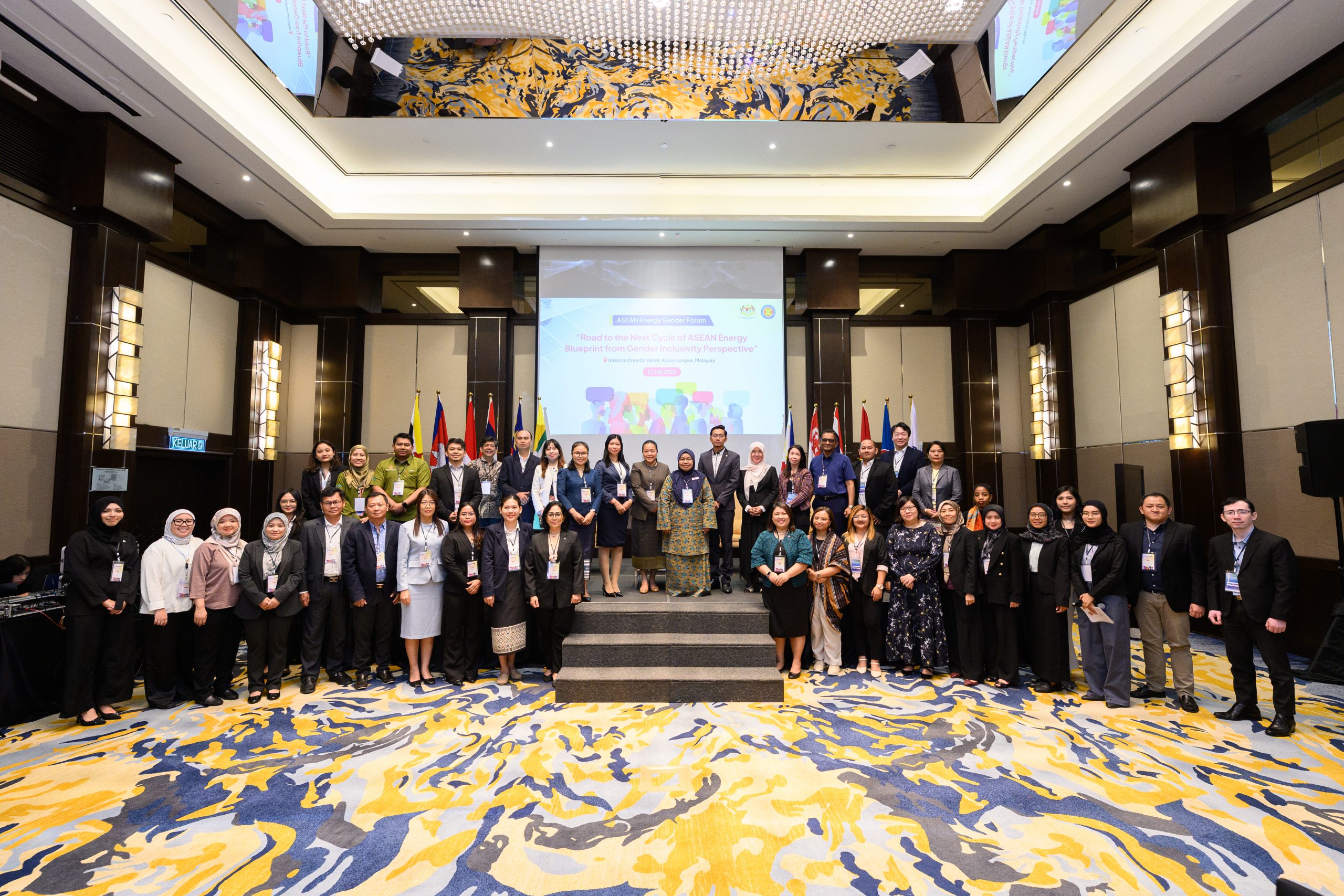
Photo 1. Group photo of ASEAN Energy Gender Forum participants.
Kuala Lumpur, 23 July 2025 – The ASEAN Energy Gender Forum, titled “Road to the Next Cycle of ASEAN Energy Blueprint from Gender Inclusivity Perspective”, was convened by the ASEAN Centre for Energy (ACE) with support from the World Bank and hosted by the Ministry of Energy Transition and Water Transformation (PETRA) Malaysia. The forum served as a pivotal platform to drive discussions on integrating gender considerations into ASEAN’s energy policies and implementation efforts.
As ASEAN advances towards the next phase of its regional energy blueprint—the ASEAN Plan of Action for Energy Cooperation (APAEC) 2026-2030—ensuring that energy policies and initiatives are inclusive, equitable, and gender-responsive is crucial. Currently, women represent only 8% of the workforce in ASEAN’s energy sector, highlighting a significant gender gap in a critical driver of sustainable development.
The forum sought to address this gap and gathered approximately 50 participants comprising of policymakers, government and private sector representatives, industry leaders, regional experts, and gender advocates. In two insightful panels and one interactive breakout session, participants unpacked, discussed, and developed actionable recommendations on how to advance the region’s gender-inclusive energy sector.
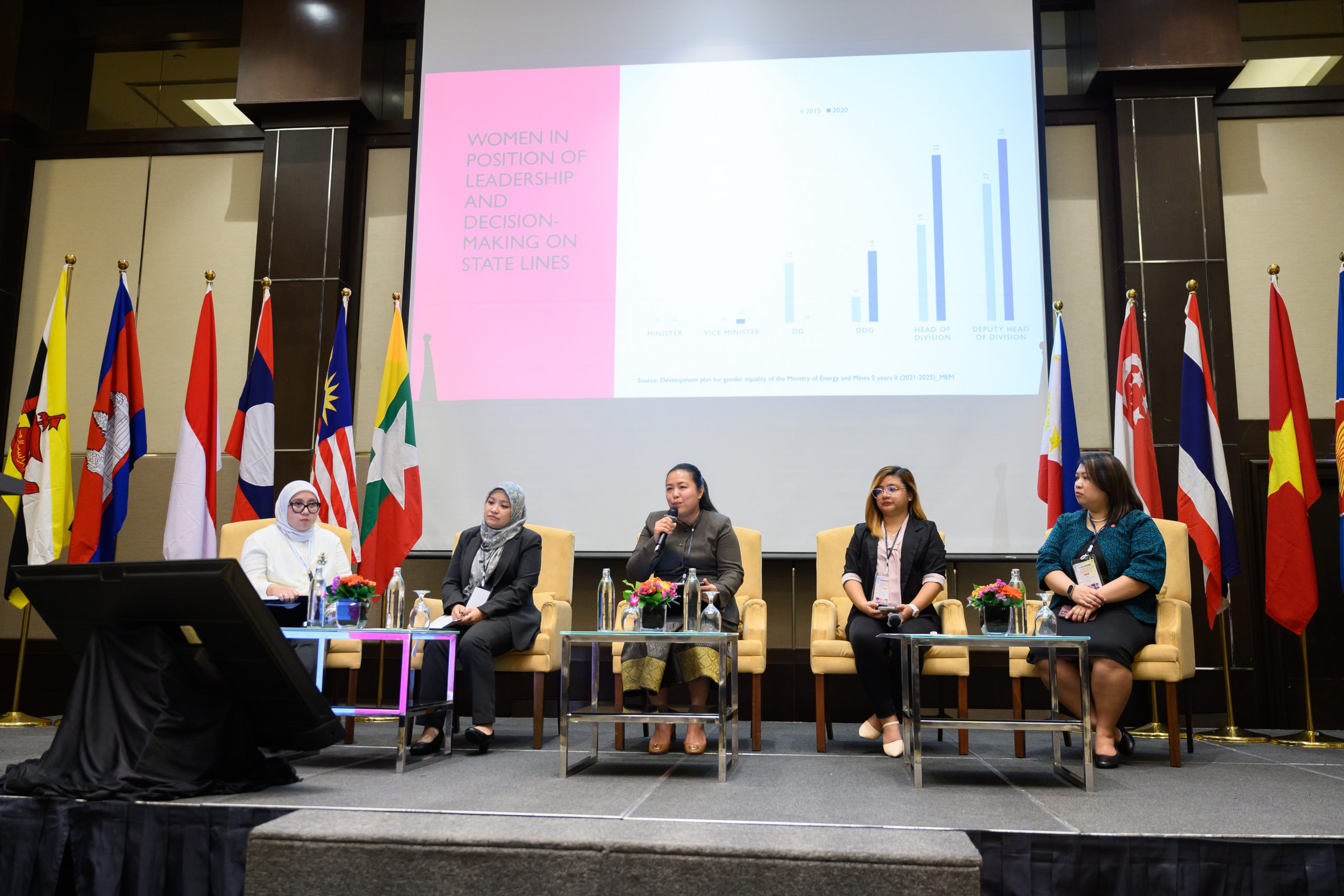
Photo 3. (Left to right) Panel one featuring Dynta T. Munardy, Senior Officer of APAEC and Strategic Partnership, ACE; Suraiya Nadzrah Ramli, Deputy Director, Capacity Planning and Development, Energy Commission Malaysia; Malyvanh Phomsengsavanh, Deputy Director General, Ministry of Industry and Commerce, Lao PDR; Julien Kosher L Cagunot, Department of Energy, Philippines; and Rebecca Rafaela R. Baylosis, Senior Officer WPS-GEDSI, ASEAN Secretariat.
Panel one spotlighted strategies to embed social equity, gender equity, gender inclusivity, and economic fairness into ASEAN’s energy transition. Ms Dynta Trishana Munardy, Senior Officer of APAEC & Strategic Partnership Department at ACE, led a discussion alongside a group of expert panellists that explored ongoing national efforts to promote gender inclusivity in the energy sector.
Suraiya Nadzrah Ramli, Deputy Director of Capacity Planning and Development at Energy Commission Malaysia, shared that Energy Commission is gaining momentum through partnerships with educational institutions and NGOs to equip women with technical and green energy skills. Meanwhile, Ms Malyvanh Phomsengsavanh, Deputy Director General at the Ministry of Industry and Commerce Lao PDR, noted that Lao PDR has institutionalised gender mainstreaming through regulatory frameworks such as the Vision to 2030, its 10-Year Gender Equality Strategy, and the Development Plan for Gender Equality, aimed at fostering inclusive participation across ministries. Ms Julien Kosher L Cagunot, Department of Energy (DOE) Philippines, highlighted that in the Philippines, women within the DOE are not just supporting but also actively driving innovation, playing key roles in renewable energy integration, planning, and ensuring that data informs and propels inclusive energy policymaking.
On the other hand, regional-level perspective was shared by Ms Rebecca Rafaela R. Baylosis, Senior Officer WPS-GEDSI at the ASEAN Secretariat. She noted that the biggest opportunity for ASEAN to advance gender equality lies in leveraging its position as a regional bloc to integrate gender considerations into energy transition frameworks. The inclusion of “gender equality” explicitly into energy frameworks could serve as a starting point that can further push gender impact assessments and promoting more participation for both women and men across all levels of energy planning and implementation.
The panel also emphasises that regional strategies need to be strengthened to streamline inclusivity within their energy transition. This can be done by adopting the ASEAN Gender Mainstreaming Framework, designing concrete gender-focused activities and actions, and embedding gender-responsive indicators to monitor APAEC implementation. Additionally, ensuring that capacity building not only reaches the community but also policymakers, regulators, utilities, and ministries is crucial to equip all key stakeholders with the appropriate ability.
The overall insights shared highlighted that there is no one-size-fits-all solution to gender gaps. Instead, what matters most is fostering a shared value system that upholds gender equality and inclusivity, allowing each country to tailor its approach while collectively advancing a just and inclusive energy sector.
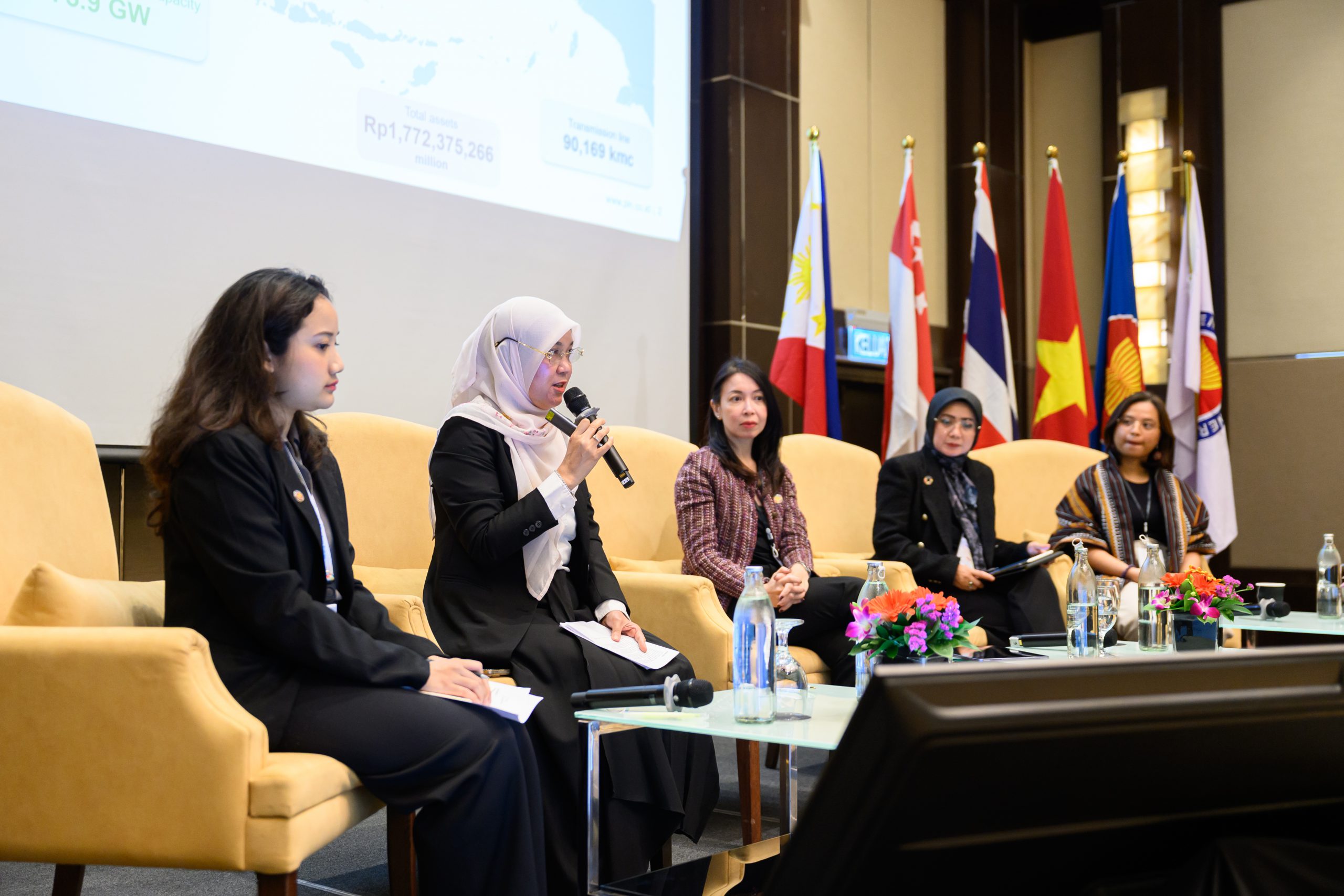
Photo 4. (Left to right) Panel two featuring Indira Pradnyaswari, Research Analyst of MPP, ACE; Nurlely Aman, Senior EVP Hukum dan Kebijakan, PT PLN (Persero); Jacqueline Lam, Regional Director for Asia, SEforALL ; Indira Pratyaksa, VP Sustainability Program, Rating & Engagement, Pertamina; Marie Antoinette Bangabang, Climate Justice Program Officer, OXFAM.
Creating pathways for gender equity in the energy sector can drive innovation, resilience, and inclusivity by enabling regional collaboration among diverse stakeholders. In support of this objective, Ms. Indira Pradnyaswari, Research Analyst, ASEAN Centre for Energy (ACE), facilitated a discussion with key informants from the private sector, a civil society organisation, and an international organisation to share initiatives that integrate gender inclusion into energy programmes. The discussion highlighted how initiatives play a crucial role in raising awareness that women can work in the energy field and are essential agents in decision-making and leadership positions.
From the perspective of industry leaders, several energy private companies have carried out a series of gender initiatives to fulfil strong ESG ratings. Nurlely Aman, Senior Executive Vice President (EVP) of Law and Policy, PT PLN, shared the Srikandi Program that reflects PLN’s strong commitment to promoting women’s participation in energy careers and leadership roles. As a result, 290 female employees have taken part in master’s and doctoral study assignments. Representative from Pertamina, Ms Indira Pratyaksa, Vice President of Sustainability Program, Rating & Engagement, also highlighted a similar initiative called Pertiwi, which focuses on fostering a more inclusive workplace. The program has contributed to the acceleration of women in leadership roles, with female representation at 18.4% in 2024, and a rising trend in female recruitment, which has reached 33.37%.
The discussion also further expands how the support from the international organisations and civil society organisations (CSOs) program can effectively influence the community, particularly empowering women. Jacqueline Lam, Regional Director for Asia, SEforALL, underscored the disproportionate impact of climate change on women and shared how they are addressing this by scaling gender-responsive solutions to bridge the gap in clean cooking and cooling access. Meanwhile, Marie Antoinette Bangabang, Climate Justice Program Officer, Oxfam, emphasised the importance of portraying women as agents of change in the energy transition, noting that community-led solar energy initiatives in the Philippines can play a vital role in empowering women’s economy.
To uncover hidden inequalities, it is essential to adopt a data-driven gender perspective on the just energy transition. Ms. Alexandra Mutungi, Gender and Climate Change Expert, UNEP, showcased ongoing efforts to advance the development of gender indicators for ASEAN energy strategies. A key step involves identifying gender issues during the planning phase of the policy or project, particularly in areas such as energy access, education, employment, entrepreneurship, and decision-making. These gender indicators should encompass both quantitative and qualitative measures to capture the depth of the participation and impact, depending on the project objectives. These indicators may also be incorporated into the Monitoring and Evaluation (M&A) framework that is crucial to generating reliable gender-disaggregated data.
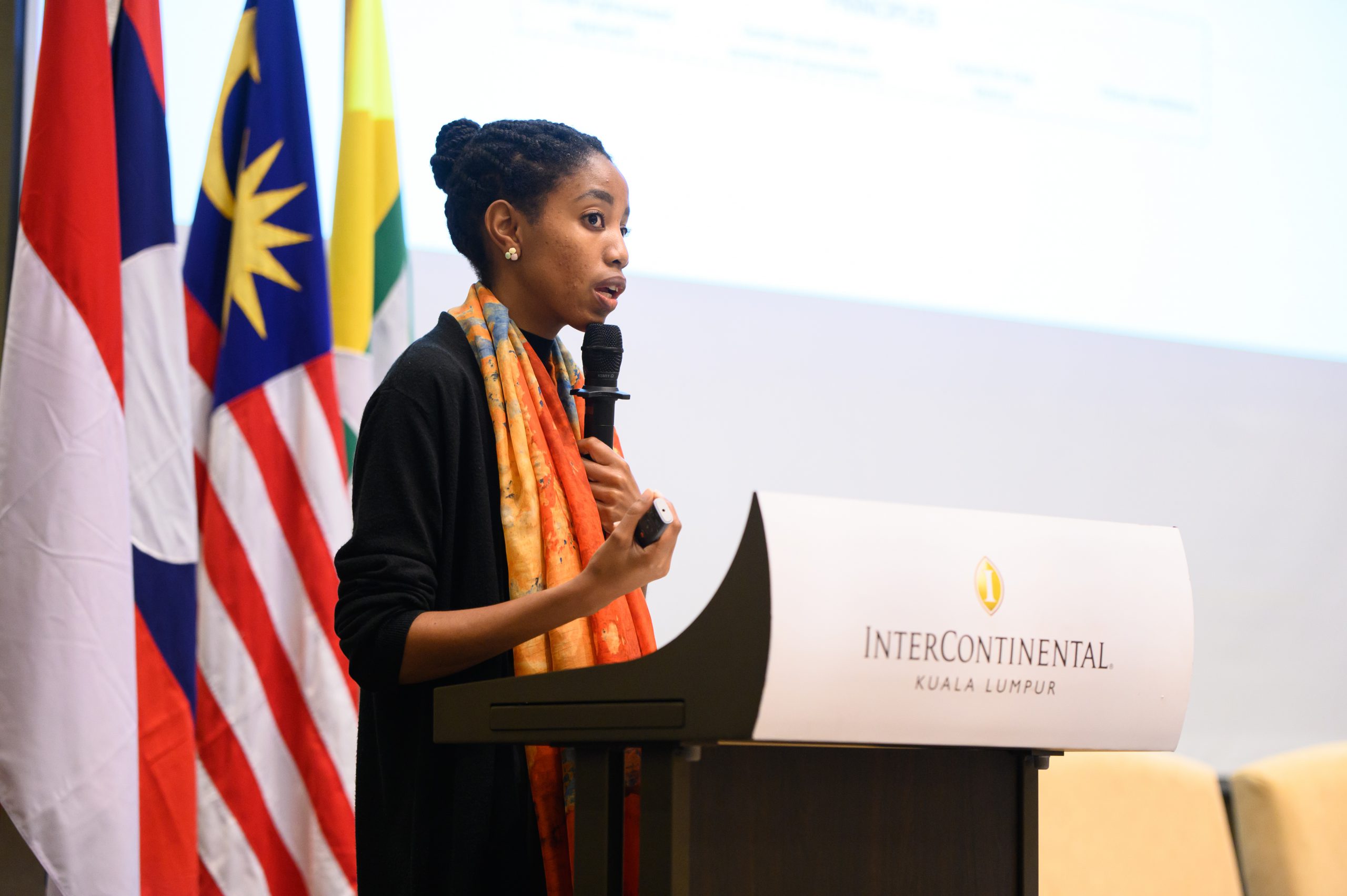
Photo 5. Alexandra Mutungi, Gender and Climate Expert of UNEP ROAP, delivering a presentation on Gender Indicators for JIET in ASEAN.
The group discussion, which brought together ASEAN Member States (AMS), private sectors, civil society organisations (CSOs), and think tanks, yielded several critical insights that directly give reference to the development of the next cycle of the ASEAN Plan of Action for Energy Cooperation (APAEC).
Photo 6. Participants and facilitators during the group breakout session.
Energy has a distinctly gendered dimension, with women often bearing the brunt of energy poverty, such as limited access to clean and affordable energy. However, their persistent underrepresentation in the energy sector tends to overlook women’s specific needs and perspectives. This invisibility, coupled with a lack of public awareness, has led to a lack of political will to consider gender-responsive energy policies.
Multiple stakeholders have begun integrating gender considerations into energy transition initiatives. Examples include women-led renewable energy enterprises in Cambodia and Indonesia’s national action plan on cross-sectoral issues of gender and climate change. Moreover, private companies in the energy sector also enacted equal gender participation regulation and a women’s empowerment program. These efforts highlight progress, but gaps remain in ensuring gender mainstreaming in energy policy and planning.
Cultural norms and persistent gender stereotypes in Southeast Asia often render gender gaps invisible in policy discourse. Moreover, the general public remains largely unaware of how gender disparities manifest in the energy sector, which contributes to a lack of urgency and weak public demand for change. As a result, gender issues are frequently sidelined in national and regional energy agendas. Addressing these systemic biases requires intentional and sustained mainstreaming gender lens in energy policy and planning.
A major barrier to inclusive energy policies is the lack of gender-disaggregated data. Without accurate data, policymakers are unable to identify disparities or design effective, equitable interventions. Strengthening data collection and analysis is essential for evidence-based decision-making. The importance of defining gender in the energy transition.
Regional cooperation presents a valuable opportunity to address gender inequality in the energy sector. Collaborative efforts may include knowledge sharing through benchmark studies, capacity building, scholarships for women to pursue energy studies, professional mentorship and exchange programmes, cross-sectoral partnerships and a series of policy dialogues. A coordinated approach will enhance the region’s capacity to promote a just and inclusive energy transition.
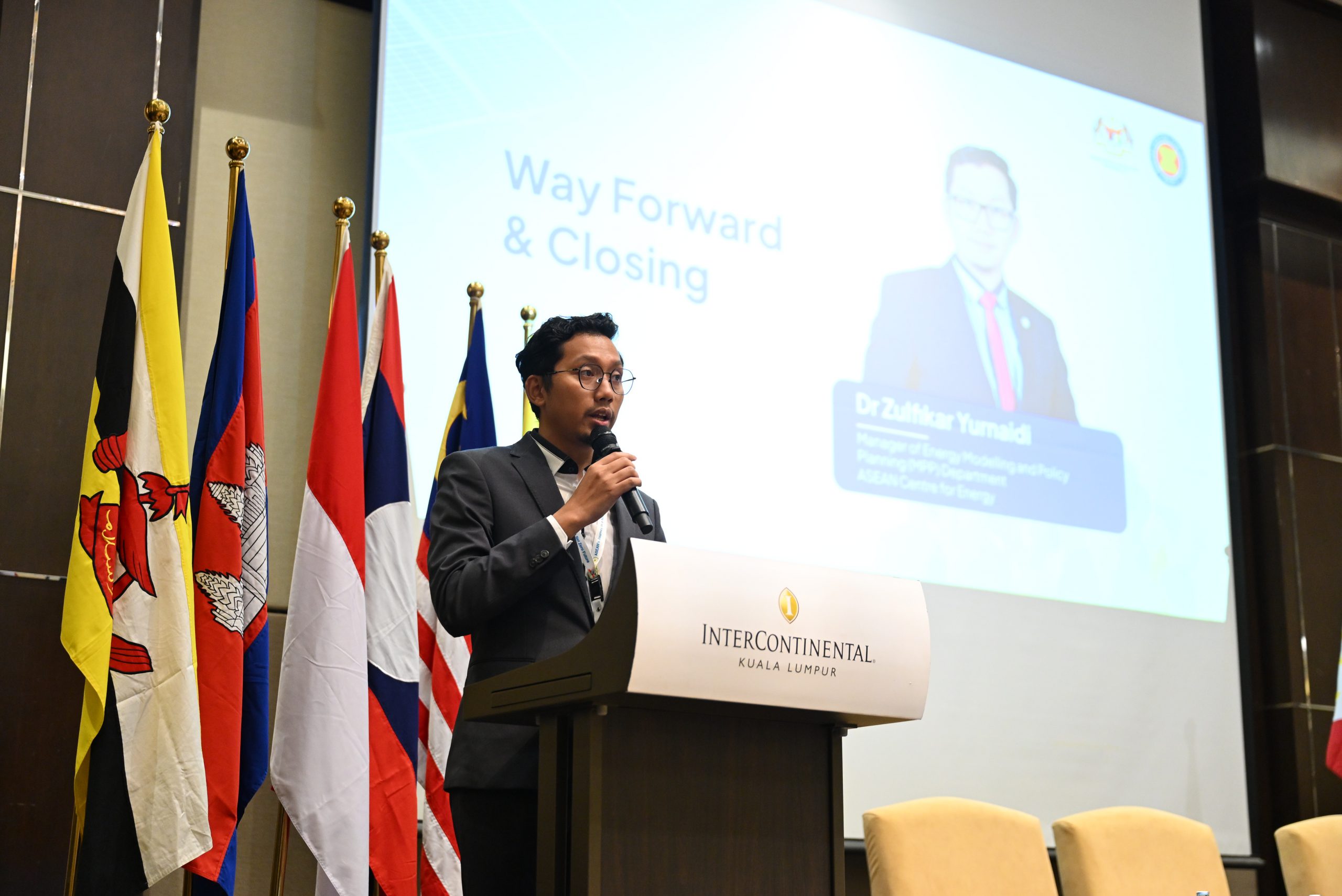
Photo 7. Dr Zulfikar Yurnaidi, Manager of MPP, ACE, delivering closing remarks.
The forum concluded with closing remarks from Dr Zulfikar Yurnaidi, Manager of Energy Modelling and Policy Planning (MPP). He reflected on the key takeaways from the panel and group discussions, emphasising the persistent challenges of addressing unseen gender gaps in energy policy planning. In his closing, Dr Zulfikar also highlighted ACE’s commitment to enhancing regional collaboration through the Quadruple Helix approach, as part of its broader vision for a just and inclusive energy transition in ASEAN.
**
(AZD, AF)
Join our ASEAN Researchers Network on Climate Change (ARNECC) by registering yourself here. Become a part of our collaborative efforts to address pressing climate challenges and shape a sustainable future.
Detailed information on ACCEPT II can be found at https://accept.aseanenergy.org/
Follow our social media to stay updated on ASEAN’s energy-climate nexus and ACCEPT activities.